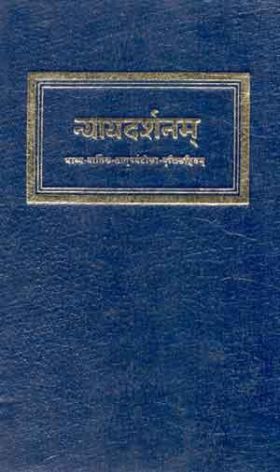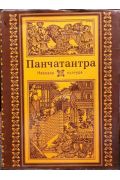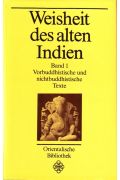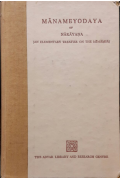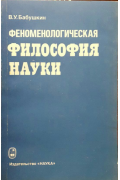The Nyaya Darsana (or simply Nyaya) is one of the six orthodox Hindu schools of philosophy. It is highlighted as essentially being a school of logical thought, debate and reasoning. The word Nyaya itself may be translated as “right” or “justice” and therefore its practice, Nyaya-Sastra, translates as “the science of right judgement”. The school has a long history, with its first relevant text – the Nyaya-Sutras – purportedly composed by one Aksapada Gautama (or otherwise rendered Gotama) around 150CE.
Nyaya may be regarded as one of several schools of logic (Hindu and otherwise) that have flourished in and around the Indian subcontinent. Prior to the advent of Nyaya as a recognized branch of philosophy it was preceded by the Anviksiki (literally translated as philosophy) dating back as far as 1500BCE. This school bore a close resemblance to Nyaya as it was characterized by a rigorous study of the nature of the soul, and utilized similar technical principles such as tarka (reason), pramana (instrument of knowledge, and later means of cognition), and prameya (object of knowledge or cognition). So prominent was this system of philosophy that the Mahabharata records the exploits of the legendary Anviksiki practitioner Astavakra. This Anviksiki sage, on one occasion in his youth confounded a renowned sophist named Vandin, in a battle of wits that ended in Vandin’s death. Sometime during the 6th century BCE, the Anviksiki school divided into a school dedicated to pure philosophical speculation and a school dedicated to logic, which likely gave root to the Nyaya Darsana.
The history and development of Nyaya as a self-contained school began roughly around 1CE. In this first century, the personality of Narada as a foremost expert in Nyaya-sastra becomes apparent as a character in the Mahabharata displaying expert deductive skills whose life intertwined with the likes of Krsna and the god Brahma. Although Narada was a legendary character there is speculation that he was also based on a real life practitioner of Nyaya-sastra (a naiyayika), to whom several aphorisms in Nyaya literature are attributed.
The Nyaya-Sutras propose sixteen categories (padarthas) which are meant to represent all that can and does exist. These sixteen categories in order of discussion are instrument of cognition (pramana), object of cognition (prameya), doubt (samsaya), the objective (prayojana), example (drstanta), established tenet (siddhanta), member (avayava), disputation (tarka), ascertainment (nirnaya), discussion (vada), rejoinder (jalpa), cavil (vitanda), fallacy (hetvabhasa), quibble (chala), legitimate objection (jati) and deficiency (nigrahasthana). This extensive list has, however, been reduced by subsequent commentators on the Nyaya-Sutras to only include the first two categories, pramana and prameya. This is due to the following fourteen padarthas being included within the definition of pramana or prameya, as pramana pertains to the observer while prameya pertains to that which is observed. Therefore the investigation of pramana and prameya forms the foundation of the classical Nyaya Darsana. It is of note however that the Nyaya-Sutras ascribe equal importance and relevance to each of these sixteen categories.
Nyaya may be regarded as one of several schools of logic (Hindu and otherwise) that have flourished in and around the Indian subcontinent. Prior to the advent of Nyaya as a recognized branch of philosophy it was preceded by the Anviksiki (literally translated as philosophy) dating back as far as 1500BCE. This school bore a close resemblance to Nyaya as it was characterized by a rigorous study of the nature of the soul, and utilized similar technical principles such as tarka (reason), pramana (instrument of knowledge, and later means of cognition), and prameya (object of knowledge or cognition). So prominent was this system of philosophy that the Mahabharata records the exploits of the legendary Anviksiki practitioner Astavakra. This Anviksiki sage, on one occasion in his youth confounded a renowned sophist named Vandin, in a battle of wits that ended in Vandin’s death. Sometime during the 6th century BCE, the Anviksiki school divided into a school dedicated to pure philosophical speculation and a school dedicated to logic, which likely gave root to the Nyaya Darsana.
The history and development of Nyaya as a self-contained school began roughly around 1CE. In this first century, the personality of Narada as a foremost expert in Nyaya-sastra becomes apparent as a character in the Mahabharata displaying expert deductive skills whose life intertwined with the likes of Krsna and the god Brahma. Although Narada was a legendary character there is speculation that he was also based on a real life practitioner of Nyaya-sastra (a naiyayika), to whom several aphorisms in Nyaya literature are attributed.
The Nyaya-Sutras propose sixteen categories (padarthas) which are meant to represent all that can and does exist. These sixteen categories in order of discussion are instrument of cognition (pramana), object of cognition (prameya), doubt (samsaya), the objective (prayojana), example (drstanta), established tenet (siddhanta), member (avayava), disputation (tarka), ascertainment (nirnaya), discussion (vada), rejoinder (jalpa), cavil (vitanda), fallacy (hetvabhasa), quibble (chala), legitimate objection (jati) and deficiency (nigrahasthana). This extensive list has, however, been reduced by subsequent commentators on the Nyaya-Sutras to only include the first two categories, pramana and prameya. This is due to the following fourteen padarthas being included within the definition of pramana or prameya, as pramana pertains to the observer while prameya pertains to that which is observed. Therefore the investigation of pramana and prameya forms the foundation of the classical Nyaya Darsana. It is of note however that the Nyaya-Sutras ascribe equal importance and relevance to each of these sixteen categories.
Editor:
- Taranatha
Cover:
- Hardcover
No posts found

